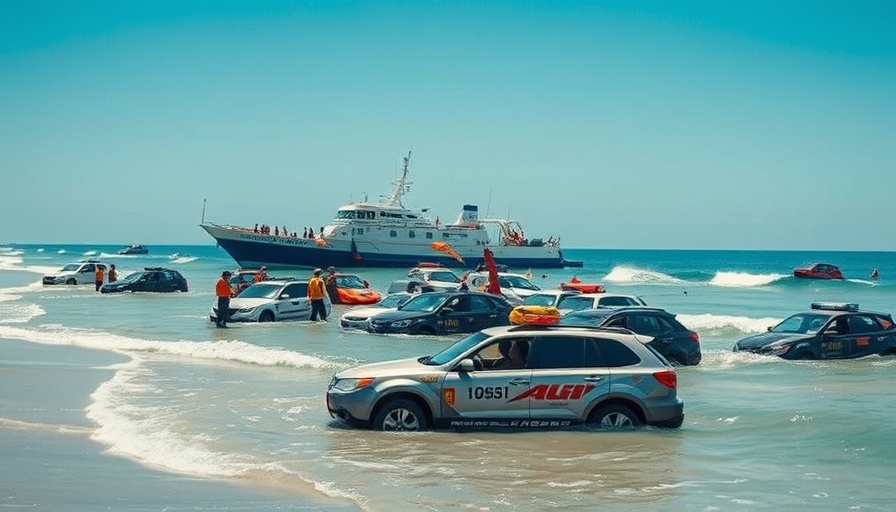
Swift Action Saves Vehicle and Ensures Safety in Sealine
The recent incident at Sealine, where a vehicle was swept away by seawater, has highlighted the importance of quick and coordinated response efforts in emergency situations. Thanks to a fast-acting team from the Ministry of Environment and Climate Change and the General Directorate of Coasts and Borders Security, the stranded vehicle was safely recovered without injury to its occupants.
The Ministry reported receiving an urgent call regarding a citizen's vehicle trapped offshore. Responding promptly, a specialized team was dispatched, showcasing their preparedness for such unforeseen events. The successful retrieval of the vehicle demonstrates not only effective logistical planning but also the commitment to public safety.
Community Impact and Insights
This incident serves as a reminder of the potential risks that residents and visitors face in coastal areas. The Sealine region, known for its beautiful landscapes and recreational activities, can turn hazardous during strong tides or adverse weather conditions. It reinforces the need for public awareness and adherence to safety guidelines when enjoying such environments.
The Role of Emergency Response Systems
Emergency response systems play a vital role in the safety of communities. In this case, the seamless coordination among various agencies, including ambulance services and coast guards, showcased the effectiveness of a well-planned response framework. This incident prompts discussions about enhancing such systems further—whether through increased training for responders or public education campaigns about safety in coastal areas.
Local Engagement in Emergency Preparedness
It is essential for local communities to engage in emergency preparedness. Residents can take steps to familiarize themselves with local emergency protocols, including how to report emergencies effectively. Initiatives like community workshops about safety during recreational activities can further foster a culture of preparedness. The involvement of local citizens in emergency drills can also create a better-prepared community.
Future Insights: Preparedness and Safety in Coastal Areas
As the climate continues to change, coastal areas may face increased risks from rising tides and extreme weather. The Sealine incident brings to light the need for long-term strategies that address safety in vulnerable regions. Invested stakeholders, including government bodies and local environmental groups, might focus on preventative measures like building barriers, improving communication networks, or establishing warning systems for rising tides.
Emphasizing the Importance of Safety
Finally, this situation reminds us of the shared responsibility of safety among local authorities and residents alike. No one can control natural events, but preparedness, awareness, and immediate action can significantly reduce risks. As storms and unpredictable weather patterns become more commonplace due to climate change, these lessons are more important than ever.
Authorities are keen to ensure that all who enjoy the beautiful Sealine region remain safe. As the community grows and outdoor activities flourish, safety remains a priority to ensure everyone can appreciate the stunning landscapes that Qatar has to offer.
If you take part in recreational activities near the coast, ensure you are informed about the risks and the protocols in place for emergencies. Stay safe out there!
 Add Row
Add Row  Add
Add 




Write A Comment